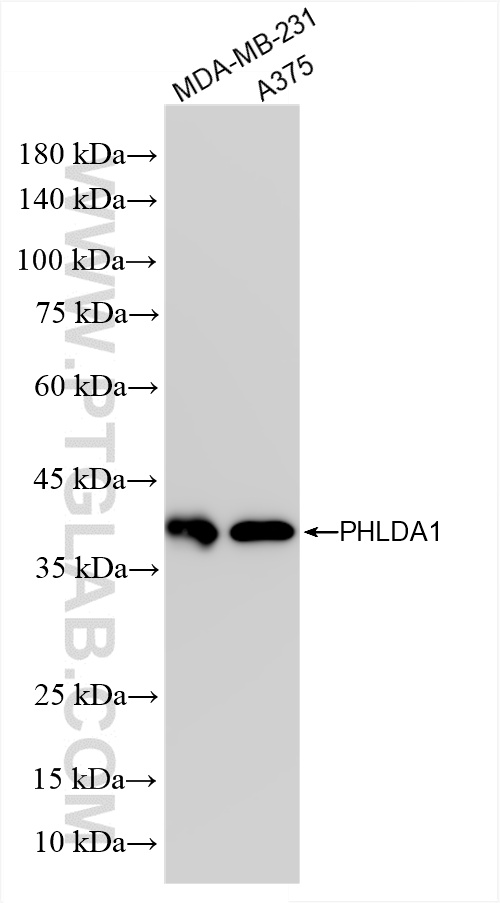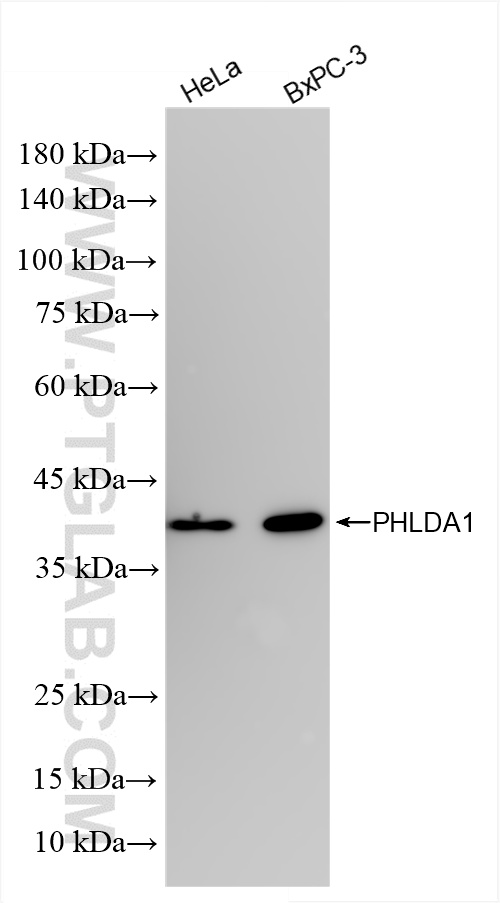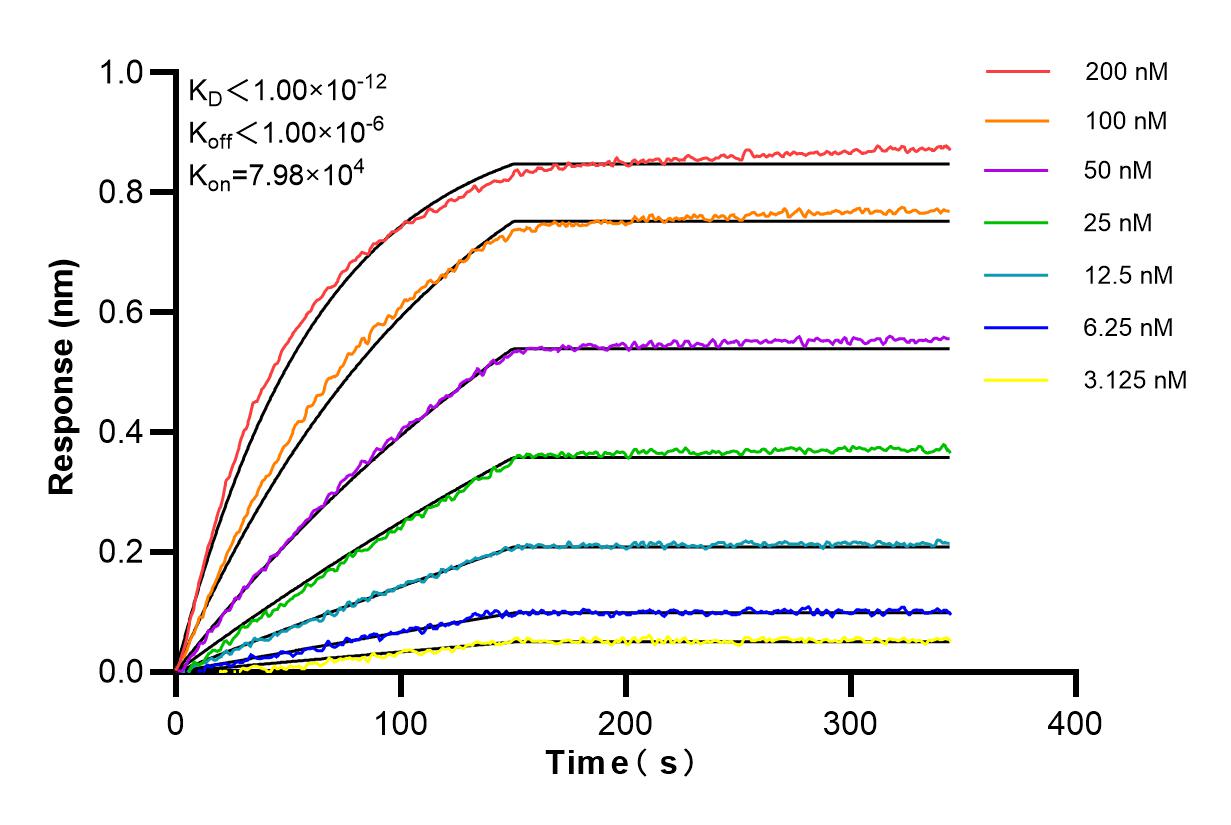验证数据展示
经过测试的应用
| Positive WB detected in | MDA-MB-231 cells, HeLa cells, BxPC-3 cells, A375 cells |
推荐稀释比
| 应用 | 推荐稀释比 |
|---|---|
| Western Blot (WB) | WB : 1:5000-1:50000 |
| It is recommended that this reagent should be titrated in each testing system to obtain optimal results. | |
| Sample-dependent, Check data in validation data gallery. | |
产品信息
85783-1-RR targets PHLDA1 in WB, ELISA applications and shows reactivity with human samples.
| 经测试应用 | WB, ELISA Application Description |
| 经测试反应性 | human |
| 免疫原 |
CatNo: Ag13125 Product name: Recombinant human PHLDA1 protein Source: e coli.-derived, PGEX-4T Tag: GST Domain: 1-259 aa of BC018929 Sequence: MLESSGCKALKEGVLEKRSDGLLQLWKKKCCILTEEGLLLIPPKQLQHQQQQQQQQQQQQQQPGQGPAEPSQPSGPAVASLEPPVKLKELHFSNMKTVDCVERKGKYMYFTVVMAEGKEIDFRCPQDQGWNAEITLQMVQYKNRQAILAVKSTRQKQQHLVQQQPPSQPQPQPQLQPQPQPQPQPQPQPQSQPQPQPQPKPQPQQLHPYPHPHPHPHSHPHSHPHPHPHPHPHQIPHPHPQPHSQPHGHRLLRSTSNSA 种属同源性预测 |
| 宿主/亚型 | Rabbit / IgG |
| 抗体类别 | Recombinant |
| 产品类型 | Antibody |
| 全称 | pleckstrin homology-like domain, family A, member 1 |
| 别名 | Apoptosis-associated nuclear protein, DT1P1B11, PHRIP, Pleckstrin homology-like domain family A member 1, PQ-rich protein |
| 计算分子量 | 45 kDa |
| 观测分子量 | 40 kDa |
| GenBank蛋白编号 | BC018929 |
| 基因名称 | PHLDA1 |
| Gene ID (NCBI) | 22822 |
| 偶联类型 | Unconjugated |
| 形式 | Liquid |
| 纯化方式 | Protein A purification |
| UNIPROT ID | Q8WV24 |
| 储存缓冲液 | PBS with 0.02% sodium azide and 50% glycerol, pH 7.3. |
| 储存条件 | Store at -20°C. Stable for one year after shipment. Aliquoting is unnecessary for -20oC storage. |
背景介绍
PHLDA1, also known as PHRIP and TDAG51, is a multifunctional protein involved in various biological processes. It can induce apoptosis in various cell types, including T cells, hippocampal cells, endothelial cells, melanoma cells, and mouse embryonic fibroblasts(PMID: 30207029). PHLDA1 plays a role in inhibiting growth factor signaling and has been implicated in tumor suppression through its ability to repress Akt activity by binding to phosphatidylinositol (PIP) lipids(PMID: 36142223).
实验方案
| Product Specific Protocols | |
|---|---|
| WB protocol for PHLDA1 antibody 85783-1-RR | Download protocol |
| Standard Protocols | |
|---|---|
| Click here to view our Standard Protocols |




